There are many things that can prevent us from seeking help with our health when we need it. These so-called ‘barriers to help seeking’ can be practical things, like cost, or psychosocial factors that influence behaviour.
In our ‘What’s in the way?’ survey, we asked over 1200 Australian men about the things that prevent them from seeing a health professional when they need to.
We asked them about practical things that get in the way, but also used the Barriers to Help Seeking Scale (BHSS)[i], which measures five psychosocial barriers to seeking help for mental and physical health problems.
Practical barriers
The most common barrier to seeking healthcare for Australian men was ‘work commitments’, which was reported by more than 1 in 5 men. A similar proportion of men reported that a decision against seeing a doctor, or a delay in being able to see a doctor, stopped them from seeking help.
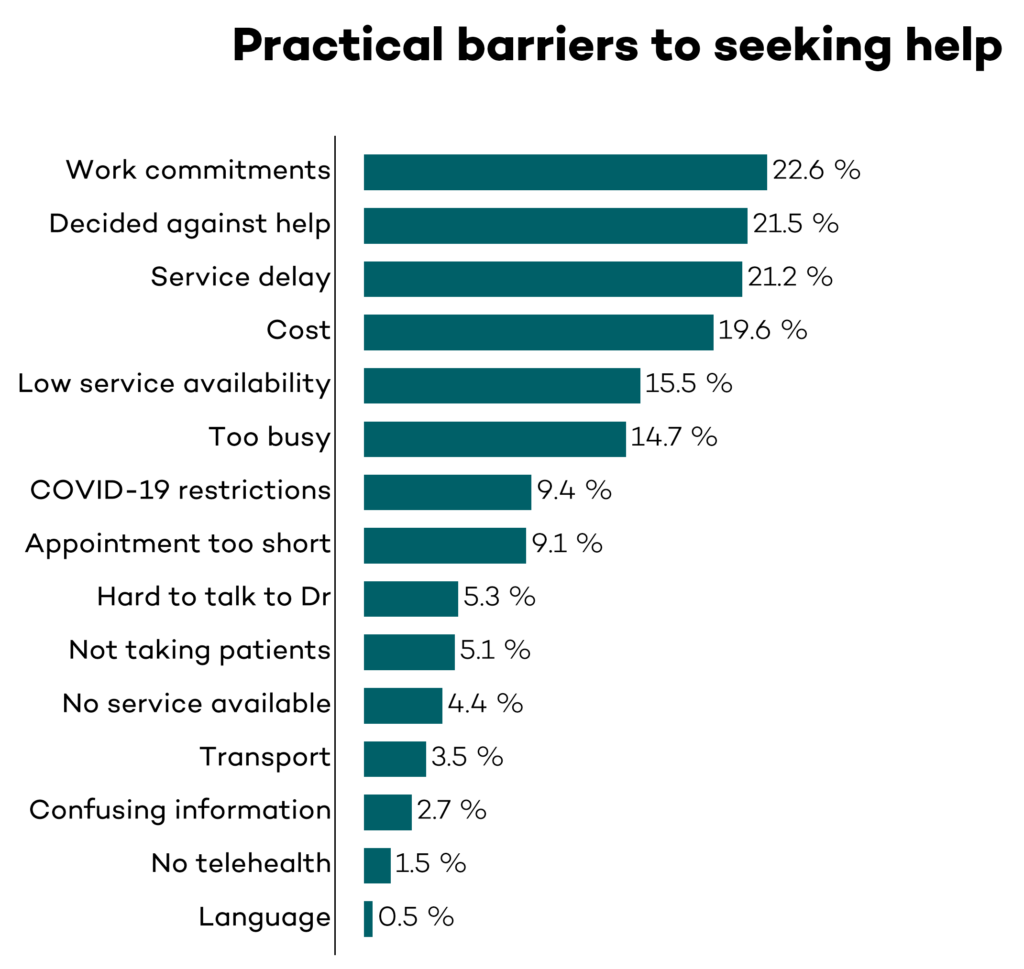
Practical barriers to seeking help were more common for young men than for their older counterparts. Almost one-third of men aged under 50 did not see a doctor because of work.
A delay in services prevented around a quarter of men aged 35-49 from seeking help, and cost was a barrier for a similar number of men aged 18-34.
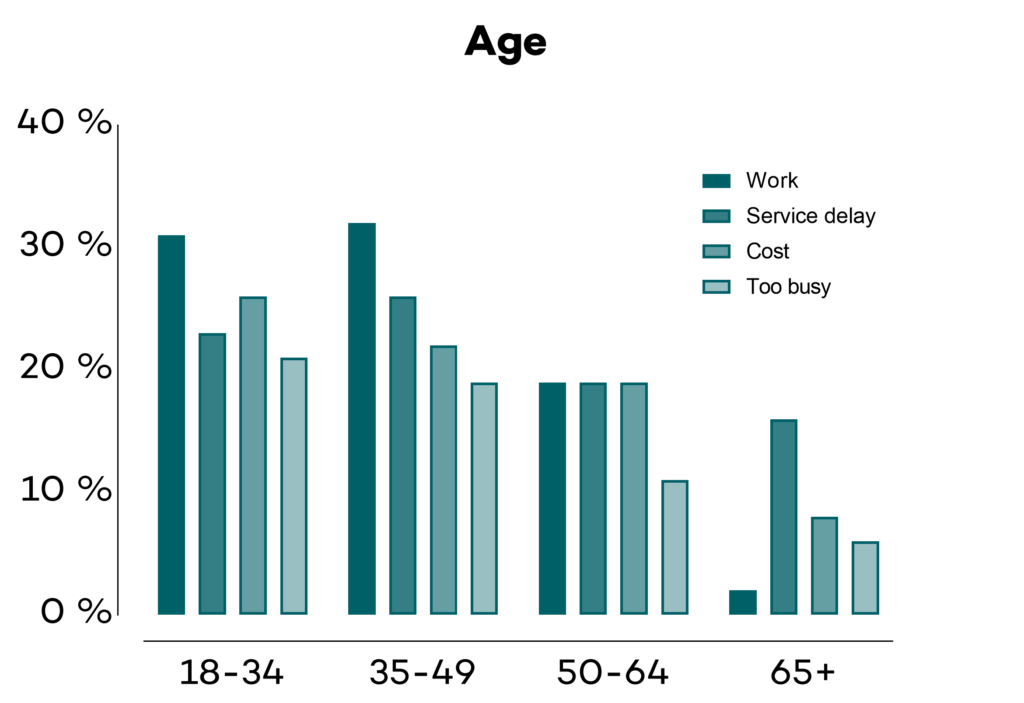
These practical barriers to seeking help for health problems were more common in men with problematic or insufficient health literacy than in men with an adequate ability to find and understand health information and navigate the health system.
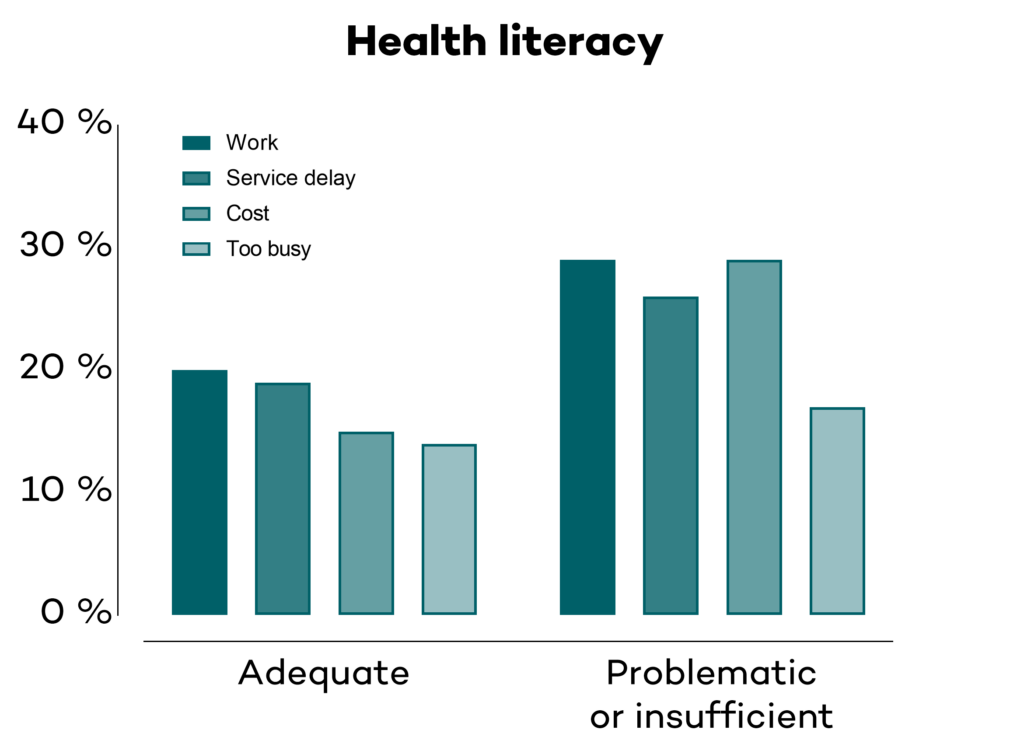
Psychosocial barriers
The Barriers to Help Seeking Scale was developed initially for use in men, to measure the extent to which various psychosocial factors influenced men’s help-seeking behaviour.
The psychosocial factor that scored highest in Australian men was ‘minimising problems and resignation’.
As we saw for the practical barriers to seeking help, there were differences in scores for psychosocial barriers in different groups of men.
All psychosocial barriers were higher in men aged under 50 than in those 50 or older.
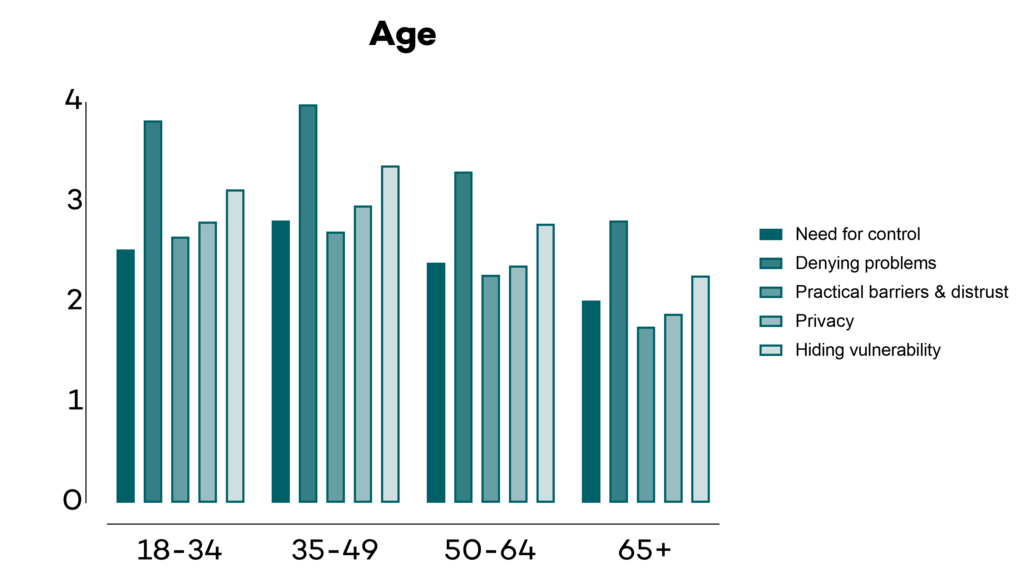
Compared to English speakers, scores were higher for men who speak a language other than English at home.
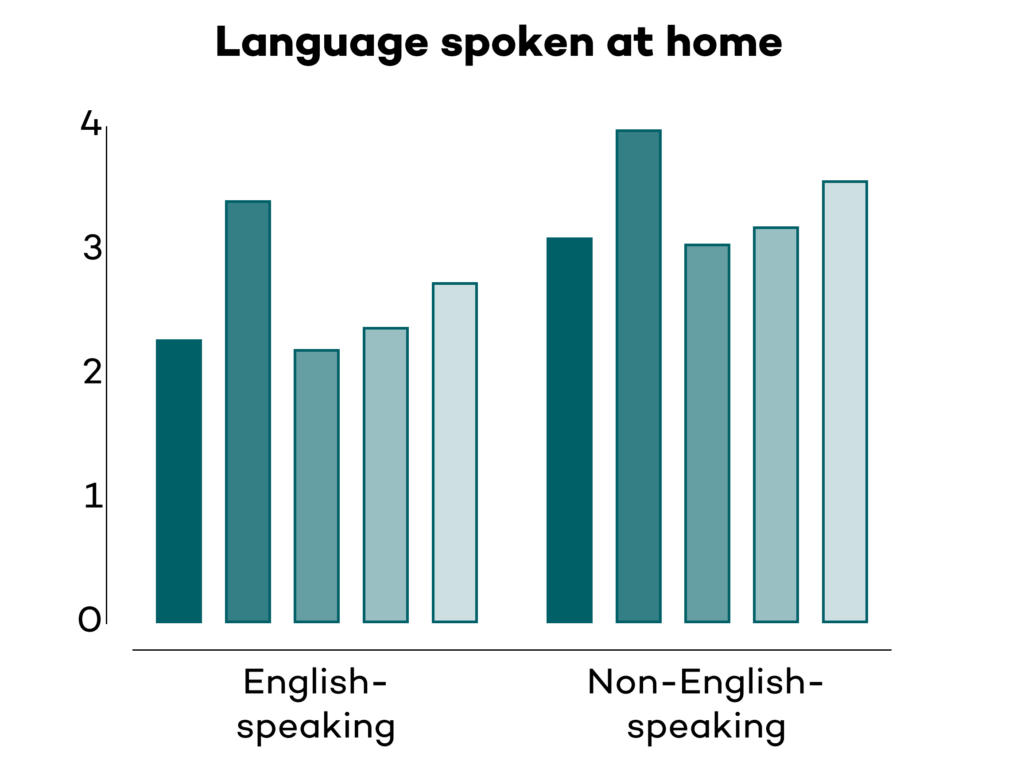
Men with problematic or insufficient health literacy had higher scores for psychosocial barriers than men with adequate health literacy.
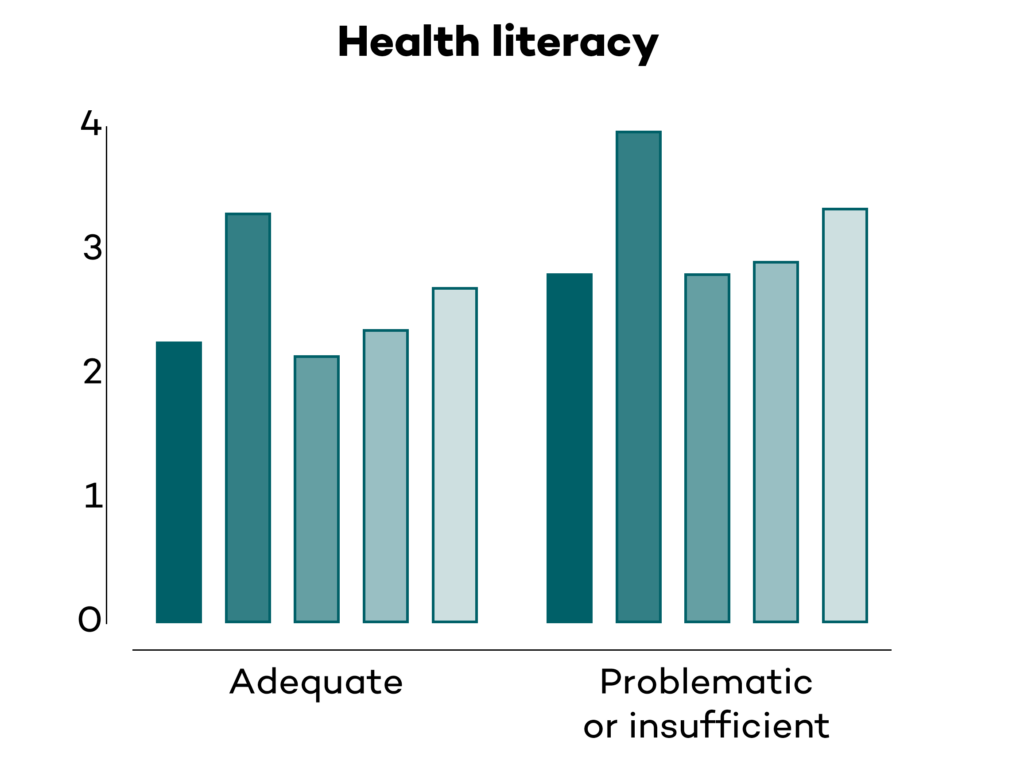
Implications for practice
These preliminary findings from our ‘What’s in the way?’ survey provide valuable information to help health professionals begin to break down the barriers to men seeking help for mental and physical health problems.
Here are a few ideas about things that could help break down the barriers:
Consultations outside of normal working hours might help younger Australian men to seek care when they need it.
Take a little extra time to ensure men understand their health problem, and what they need to do and why, especially for men whose native language is not English.
Help improve health literacy by helping men understand the health system, and even the operation of your own practice.











